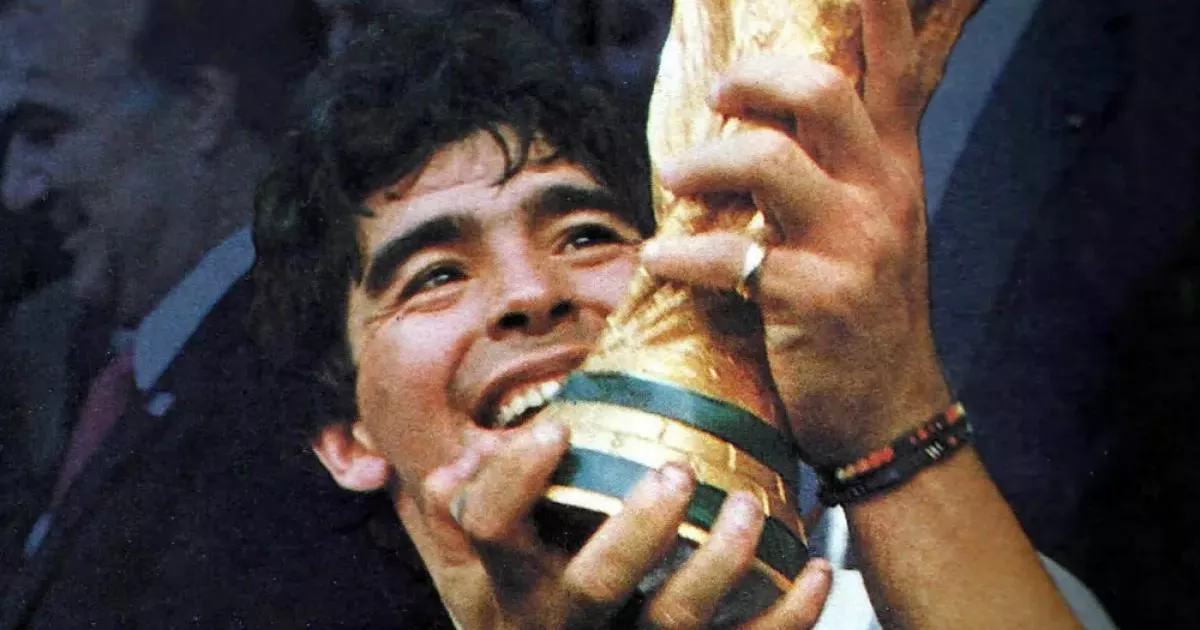From career breakthroughs to professional milestones, explore how Diego Maradona made an impact.
Diego Maradona was an Argentine professional football player and manager, globally recognized as one of the greatest footballers of all time. He jointly won the FIFA Player of the 20th Century award with Pelé. A masterful playmaker with exceptional dribbling skills, Maradona led Argentina to victory in the 1986 FIFA World Cup. His career was marked by both moments of brilliance and controversy, including the infamous 'Hand of God' goal. Beyond his playing career, he also served as a football manager.
1958: Comparison to Pelé
Maradona's performance in 1986 was compared to Pelé's in 1958.
October 1976: Professional Debut for Argentinos Juniors
On October 20, 1976, Maradona made his professional debut for Argentinos Juniors against Talleres de Córdoba, becoming the youngest player in the history of the Argentine Primera División.
November 1976: First Professional Goal
On November 14, 1976, Maradona scored his first goal as a professional against San Lorenzo.
1976: Start of Argentinos Juniors Career
In 1976, Maradona started playing for Argentinos Juniors.
February 1977: Maradona's International Debut
On 27 February 1977, at age 16, Maradona made his full international debut against Hungary, just four months after his professional debut for Argentinos Juniors.
1977: Played 49 matches and scored 19 goals
In the 1977 season, Maradona played 49 matches and scored 19 goals, starting to gain attention from other South American clubs.
November 1978: Maradona Plays Friendly for Argentina U20
On 3 November 1978, shortly after turning 18, Maradona played for the U20 Argentina team in a friendly match against Franz Beckenbauer's New York Cosmos, scoring twice in a 2–1 win.
1978: Scored 26 goals and not selected to World Cup
In 1978, Maradona scored 26 goals in 35 matches, but was not selected for the 1978 World Cup squad.
June 1979: Maradona Scores First Senior International Goal
On 2 June 1979, Maradona scored his first senior international goal in a 3–1 win against Scotland at Hampden Park.
1979: Top Scorer in both Metropolitan and Nacional tournaments
In 1979, Maradona scored 26 goals in 26 games, and finished top scorer in both Metropolitan and Nacional tournaments.
1980: Assist against Switzerland
In 1980, Maradona made an assist for Ramón Díaz's header against Switzerland with the rabona.
1980: Top Scorer for the Last Four Consecutive Tournaments
In 1980, Maradona scored 43 goals in 45 appearances and was the top scorer again for the last four consecutive tournaments.
February 1981: Transfer to Boca Juniors
In February 1981, Maradona transferred to Boca Juniors for US$4 million.
1982: Transferred to Barcelona
After the 1982 World Cup, Maradona was transferred to Barcelona for a then world record fee of £5 million ($7.6 million).
1982: Endorsements and Sports Star Status
By 1982, Diego Maradona had risen to become one of the world's biggest sports stars. He secured endorsements with numerous companies, including Puma and Coca-Cola, earning an additional $1.5 million per year in addition to his club salary.
1982: Maradona's First World Cup Tournament
In 1982, Maradona played his first World Cup tournament in Spain. Argentina, the defending champions, lost to Belgium in the opening game, and internal tensions affected the team's performance. They were eventually defeated by Brazil and Italy in the second round.
1982: Comparison to Paolo Rossi
Maradona's performance in 1986 was compared to Paolo Rossi's in 1982.
June 1983: Applauded by Real Madrid Fans
On June 26, 1983, Maradona scored in the Copa de la Liga final against Real Madrid and became the first Barcelona player to be applauded by Real Madrid fans at Estadio Santiago Bernabeu.
July 1984: Arrival in Naples
On July 5, 1984, Maradona arrived in Naples and was presented as a Napoli player to 75,000 fans at Stadio San Paolo.
1984: Playing for Napoli and Sponsorships
In 1984, Diego Maradona earned $7 million a year playing at Napoli, with sponsorships including $5 million from Hitachi. That year, he was also named the best known person in the world by IMG.
1984: Transfer to Napoli
In 1984, Maradona set another world record transfer fee when he moved to Napoli for £6.9 million.
1986: Led Argentina to the 1986 World Cup victory
In 1986, Diego Maradona led Argentina to victory in the World Cup, particularly standing out in the quarter-final against England. His performance and two goals lifted the spirits of the nation. Guillem Balagué notes that Maradona's actions transformed him from a star player into a legend.
1986: Napoli Wins First Serie A Championship
In 1986, Led by Maradona, Napoli secured their first-ever Serie A Championship, marking a significant career milestone for the team and Maradona.
1986: Maradona Wins Golden Ball at World Cup
In 1986, Maradona won the Golden Ball as the best player of the World Cup and was widely regarded to have single-handedly won the tournament for Argentina.
1986: First goal against Belgium
In the 1986 World Cup semi-final, Maradona scored his first goal against Belgium, showcasing his left-footed dominance.
1986: Maradona's Performance at the 1986 World Cup
Maradona's performance at the 1986 World Cup in Mexico, widely regarded as the greatest individual performance in tournament history, where he single-handedly delivered his country its second World Cup.
1986: Maradona Appears for Tottenham Hotspur
Shortly before the 1986 World Cup, Maradona appeared for Tottenham Hotspur in a testimonial match for Osvaldo Ardiles against Internazionale.
May 1987: Napoli Celebrates Serie A Championship
In May 1987, Napoli's victory in the Serie A Championship sparked widespread celebrations, including street parties, mock funerals for rival teams Juventus and Milan, and the painting of murals of Maradona throughout the city.
1987: Ma-Gi-Ca Front-Line Formed
In 1987, Maradona, Bruno Giordano, and Careca formed a prolific attacking trio for Napoli, later dubbed the "Ma-Gi-Ca" front-line.
1988: Maradona Serie A Top Scorer
In the 1987–88 season, Maradona was the Serie A top scorer with 15 goals.
1989: Napoli Runner-Up in Coppa Italia
In the 1988–89 season, Napoli finished as runner-up in the Coppa Italia, losing to Sampdoria in the final.
1990: Napoli Wins Second League Title
In 1989–90, Napoli secured their second league title, and later in 1990, won the Italian Supercup by defeating Juventus 5–1.
1990: Assist against Brazil
In the 1990 World Cup second-round tie against Brazil, Maradona used his right foot to set up the winning goal for Claudio Caniggia.
1992: Maradona Leaves Napoli for Sevilla
In 1992, after a 15-month ban for a drug test failure, Maradona left Napoli in disgrace and signed for Sevilla.
February 1993: Return to Argentina National Team
On 24 February 1993, Maradona returned to the Argentina national team for the 1993 Artemio Franchi Cup against Denmark in Mar del Plata. Argentina won 5–4 in a penalty shoot-out after a 1–1 draw.
1993: Maradona Plays for Newell's Old Boys
In 1993, Maradona played for Newell's Old Boys.
1994: Manager of Mandiyú of Corrientes
In 1994, Maradona began his managerial career alongside Carlos Fren, leading Mandiyú of Corrientes.
1994: Expulsion from USA '94
In 1994, Maradona was expelled from the USA '94 World Cup after failing a drug test for ephedrine. He claimed it was due to the U.S. version of the energy drink Rip Fuel containing the chemical, unlike the Argentine version. Argentina was later eliminated in the round of 16. This marked the end of his international career.
1994: 1994 World Cup
In the 1994 World Cup in the United States, Maradona played in two games, scoring one goal against Greece at the Foxboro Stadium near Boston. After failing a drug test for ephedrine doping, he was sent home. His goal celebration against Greece was notable, marking his last international goal for Argentina.
1995: Manager of Racing Club
In 1995, Maradona and Carlos Fren led Racing Club, with little success.
1995: Maradona Returns to Boca Juniors
In 1995, Maradona returned to Boca Juniors for a two-year stint.
April 1996: Exhibition boxing match for charity
In April 1996, Maradona participated in a three-round exhibition boxing match with Santos Laciar for charity.
1996: Maradona Plays for Toronto Italia
In 1996, Maradona played in a friendly match alongside his brother Raul for Toronto Italia against the Canadian National Soccer League All-Stars.
2000: Maradona Captains Bayern Munich in Farewell Game
In 2000, Maradona captained Bayern Munich in a friendly against the German national team in the farewell game of Lothar Matthäus.
2000: Publication of autobiography
In 2000, Maradona published his autobiography "Yo Soy El Diego" ("I am The Diego"), which became a bestseller in Argentina.
November 2001: Maradona's Testimonial Match
On 10 November 2001, Maradona was given a testimonial match between an all-star World XI and the Argentina national team, where he scored two penalty kicks in a 6–3 win at La Bombonera.
2002: The Guardian on Maradona's Second Goal Against England
In 2002, Russell Thomas of The Guardian described Maradona's second goal against England in the 1986 World Cup quarter-finals as "arguably the greatest individual goal ever."
June 2005: Return to Boca Juniors as vice-president
On 22 June 2005, Maradona returned to Boca Juniors as a sports vice-president, managing the First Division roster.
August 2005: Contract began
On 1 August 2005, Maradona's contract with Boca Juniors began.
August 2005: Debut as host of 'La Noche del 10'
On 15 August 2005, Maradona debuted as the host of 'La Noche del 10' on Argentine television, with Pelé as his first guest.
November 2005: Rejection of offer to work with Argentina's national team
In November 2005, Maradona declined an offer to work with Argentina's national football team.
May 2006: Participation in UK's Soccer Aid
In May 2006, Maradona agreed to participate in UK's Soccer Aid, a program to raise money for UNICEF.
August 2006: Quitting position in Boca Juniors
On 26 August 2006, Maradona quit his position in Boca Juniors due to disagreements with the AFA.
2006: Boca won Clausura
In 2006, Boca won the Clausura with Maradona fostering a close relationship with the players.
December 2007: Presentation of Signed Shirt to Iran
In December 2007, Maradona presented a signed shirt with a message of support to the people of Iran, which is displayed in the Iranian Ministry of Foreign Affairs' museum.
October 2008: Head coach of the national team
On 29 October 2008, AFA chairman Julio Grondona confirmed that Maradona would be the head coach of the national team.
November 2008: Appointed as Argentina National Team Coach
In November 2008, Maradona became the coach of Argentina's national football team.
2008: Corrado Ferlaino on Maradona's leadership
In 2008, Napoli's former president Corrado Ferlaino commented on Maradona's leadership qualities during his time with the club, describing him as "a coach on the pitch."
2009: CBC Sports on Maradona's Goal Against England
In 2009, John Molinaro of CBC Sports described Maradona's goal against England as "the greatest ever scored in the tournament – and, maybe, in soccer."
2010: Coached Argentina in the 2010 World Cup
In 2010, Maradona was in charge of the Argentina national team at the World Cup in South Africa, before leaving at the end of the tournament.
2010: Argentina in the 2010 FIFA World Cup
In 2010, at the FIFA World Cup, Argentina started by winning 1–0 against Nigeria and then 4–1 victory over South Korea and won 2-0 against Greece to win the group and advance to a second round, meeting Mexico. After defeating Mexico 3–1, Argentina was defeated by Germany 4–0 in the quarter-finals to go out of the competition.
May 2011: Manager of Al Wasl FC
In May 2011, Maradona became the manager of Dubai club Al Wasl FC in the United Arab Emirates.
2011: Coached Al Wasl
In the 2011–12 season, Maradona coached Dubai-based club Al Wasl in the UAE Pro-League.
July 2012: Sacked from Al Wasl FC
On 10 July 2012, Maradona was sacked as manager of Dubai club Al Wasl FC.
August 2013: 'Spiritual coach' at Deportivo Riestra
In August 2013, Maradona became 'spiritual coach' at Argentine club Deportivo Riestra.
September 2014: Participation in "Match for Peace"
On 1 September 2014, Maradona participated in the "Match for Peace" at the Stadio Olimpico in Rome, donating the proceeds to charity.
2014: Roger Bennett on Maradona's 1986 World Cup Performance
In 2014, Roger Bennett of ESPN FC described Maradona's performance at the 1986 World Cup in Mexico as "the most virtuoso performance a World Cup has ever witnessed."
October 2015: Acceptance of Role in Football for Unity
In October 2015, Maradona thanked Queen Elizabeth II and the Houses of Parliament in London for the opportunity to provide "true justice" as the Latin American director for the non-governmental organization Football for Unity.
2017: Coached Fujairah
In 2017, Maradona became the coach of Fujairah before leaving at the end of the season.
May 2018: Chairman of Dynamo Brest
In May 2018, Maradona was announced as the new chairman of Belarusian club Dynamo Brest.
September 2018: Chairman of Dynamo Brest / Coach of Dorados
From May to September 2018, Maradona was the chairman of Dynamo Brest. From September 2018, Maradona became the coach of Mexican club Dorados.
September 2018: Manager of Dorados
In September 2018, Maradona was appointed manager of Mexican second division side Dorados.
2018: Sportsnet on Maradona's Performance
In 2018, Sportsnet noted that no other player had dominated a single competition the way Maradona did in Mexico in 1986.
June 2019: End of Dorados Coaching
In June 2019, Maradona's tenure as coach of Mexican club Dorados came to an end.
June 2019: Stepping down from Dorados
On 13 June 2019, Maradona's lawyer announced that he would be stepping down from his role as manager of Dorados, citing health reasons.
September 2019: Coach of Gimnasia de La Plata
In September 2019, Maradona became the coach of Argentine Primera División club Gimnasia de La Plata.
June 2020: Gimnasia renewed Maradona's contract
On 3 June 2020, despite having a bad record during the 2019–20 season, Gimnasia renewed Maradona's contract for the 2020–21 season.
November 2020: Death of Maradona
In November 2020, Maradona died in post. His coaching staff resigned from the club following his death.
Mentioned in this timeline

Donald John Trump is an American politician media personality and...
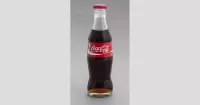
Coca-Cola is a globally recognized cola soft drink produced by...

Vladimir Vladimirovich Putin is a Russian politician and former intelligence...
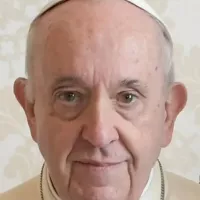
Pope Francis served as the head of the Catholic Church...
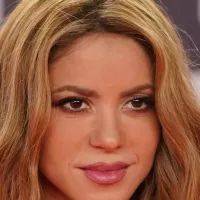
Shakira Isabel Mebarak Ripoll a Colombian singer-songwriter and dancer is...

Barack Obama the th U S President - was the...
Trending
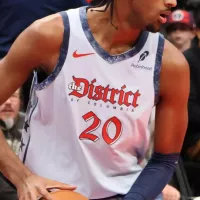
11 months ago Alex Sarr Shines as Wizards Beat Pistons: Sarr's 19 Points Not Enough
3 months ago Rutgers Student Critically Injured at Fraternity House: Investigation Underway, Safety Concerns Raised.
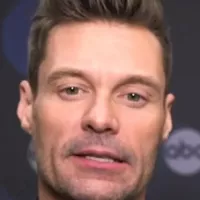
2 months ago Ryan Seacrest's Impressive Workout: Biceps Bulge Surprises Fans After Hollywood Exit
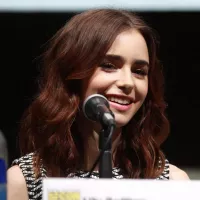
10 months ago Lily Collins Shares Adorable Dance Party with Daughter Tove and Celebrates First Birthday as Mom.
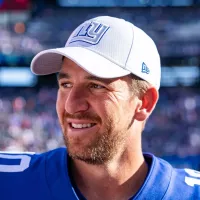
10 months ago Caitlin Clark, Serena Williams at NFL Meeting; Flag Football for LA28.
8 months ago Queens 10K Returns: Race, Festival, Kids Run & Community Engagement in 2025
Popular

Thomas Douglas Homan is an American law enforcement officer who...

William Franklin Graham III commonly known as Franklin Graham is...

XXXTentacion born Jahseh Dwayne Ricardo Onfroy was a controversial yet...

Jupiter is the fifth and largest planet from the Sun...

Instagram is a photo and video-sharing social networking service owned...

KFC or Kentucky Fried Chicken is an American fast-food chain...
